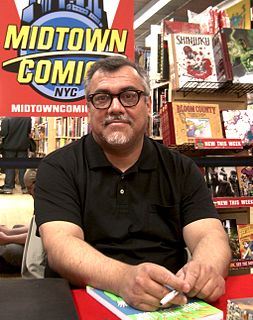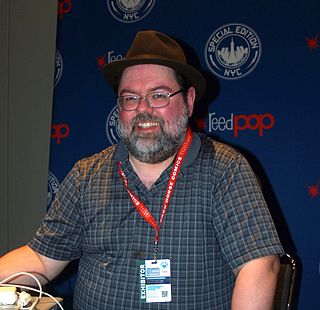Top 141 Readership Quotes & Sayings - Page 3
Explore popular Readership quotes.
Last updated on April 16, 2025.
I'm not one of the people who has a kind of scholarly hat and writes in a certain way for an academic audience and then puts on a public intellectual hat and writes a different way for a different kind of readership. I generally write the way I write, no matter what and it seems to have worked for me.
When Emily Dickinson's poems were published in the 1890s, they were a best-seller; the first book of her poems went through eleven editions of a print run of about 400. So the first print run out of Boston for a first book of poems was 400 for a country that had fifty million people in it. Now a first print run for a first book is maybe 2,000? So that's a five-time increase in the expectation of readership. Probably the audience is almost exactly the same size as it was in 1900, if you just took that one example.
Theodor Geisel (otherwise known as Dr. Seuss) spent his workdays ensconced in his private studio, the walls lined with sketches and drawings, in a bell-tower outside his La Jolla, California, house. Geisel was a much more quiet man than his jocular rhymes suggest. He rarely ventured out in public to meet his young readership, fretting that kids would expect a merry, outspoken, Cat in the Hat–like figure, and would be disappointed with his reserved personality. “In mass, [children] terrify me,” he admitted.
I realized early in my career that precisely what one reader doesn't like is what another reader loves. Collectively, any writer's audience presents a mishmash of expectations that can never all be met. What one-tenth of my readership may not be crazy about the other nine-tenths savors. The moment you start altering a book or a painting or any type of art as if it's a public collaborative, you crucify its soul. I'd rather irritate a few people and delight a lot than touch no one." ~ Karen Marie Moning
Once I looked into it, I was taken aback to learn that pretty much nothing by João Gilberto Noll was available in English translation. I was confident that I could find an editor and the readership for a translation: Noll is highly respected in Brazil, and at the same time divisive, somewhat like Hilda Hilst. Neither of them enjoys the universal acclaim you might associate with Clarice Lispector, whom everyone adores, myself included. Still, I considered it a tremendous injustice that Noll had not been more widely translated and was determined to rectify it.
There are a lot of great technicians in advertising. And unfortunately they talk the best game. They know all the rules. They can tell you that people in an ad will get you greater readership. They can tell you that a sentence should be this short or that long. They can tell you that body copy should be broken up for easier reading. They can give you fact after fact after fact. They are the scientists of advertising. But there's one little rub. Advertising is fundamentally persuasion and persuasion happens to be not a science, but an art.
This is a wonderful book, unique and engaging. Diaconis and Graham manage to convey the awe and marvels of mathematics, and of magic tricks, especially those that depend fundamentally on mathematical ideas. They range over many delicious topics, giving us an enchanting personal view of the history and practice of magic, of mathematics, and of the fascinating connection between the two cultures. Magical Mathematics will have an utterly devoted readership.
We've been growing our readership every month, and we're kind of like, where are they all coming from? This is wonderful! And I think one of the best surprises was that you hear so often that young women don't care about feminism, that young women don't identify as feminists. But really, the majority of our readers are young women. So to see so many young people kind of get involved and really take to Feministing.com was a really exciting thing.
It's part of a writer's profession, as it's part of a spy's profession, to prey on the community to which he's attached, to take away information - often in secret - and to translate that into intelligence for his masters, whether it's his readership or his spy masters. And I think that both professions are perhaps rather lonely.
I have no idea other than where my readers are located, roughly. They could be 12. They could be 50. I just haven't a clue. I'm hoping my readership is a little wider and broad than what the typical fashion blog gets. I have received emails from a 50-year-old lady in Tel Aviv who says I have revived her passion for fashion.
Tad Homer-Dixon is a rare kind of public intellectual, who combines real expertise with a commitment to communicate to the widest possible readership. In The Ingenuity Gap he wants us all to wake-up to the fearful possibility that our blithe trust in science and technology may be misplaced. Human ingenuity may not be capable of coping with two emerging crises of this century and the next: population growth and environmental despoliation. Read Homer Dixon's wake-up call and you will see the future very differently.
I think that blogging and the Internet has completely changed feminism for ever, I think. You know, it used to be, 10 years ago, if you wanted to have a strong, influential voice in the feminist movement, you really needed to be part of this New York/D.C. elite group of feminists, or part of a mainstream feminist organization. And now it's kind of an amazing thing that you can just start a blog and put your voice out there and build your readership.
The combination of an out-of-control tabloid press and a readership that thrills to the destruction of the England head coach is something no other country can offer. Scolari was driven out; Steve McClaren's personal life made the front pages. Neither of them even held the job. Then there was the fake-sheikhing of Sven-Göran Eriksson. That a newspaper should so brilliantly and deliberately destabilise the national head coach in a World Cup year is something no other sporting nation would consider.
There has to be a kind of grassroots push, a movement, as it were, against the inherent isolationism of American capitalism as practiced in the publishing industry. There need to be grants and government support and a few publishers, mainstream and independent, who are not afraid to challenge American readership. We need to build a network of translators, publishers and readers. We hope that our annual anthology might provide an upsurge in interest for European fiction and then, as we publish it every year, become a habit to many readers.
I think when you look at the diversity of the readership, all the different people who love comics, I want comics to reflect the real world, and I think Marvel does a good job of trying to do that, but I don't think there's ever an end point when it comes to creating diversity and creating stories that people can relate to.
When I get about five readers I can rub together in one genre, I leave that genre and go somewhere else. And this is due to a vow that I made myself when I started writing - that if I had any success at all, I would not be bound to one form of writing. That I would write what moves me. The only way I can see me surviving and doing more than one book is to present the readers with a Dan Simmons novel, with whatever tropes and protocols from whatever genre I want to borrow them. If that builds a Dan Simmons readership, well then, okay. Otherwise, forget about it. I'd rather drive a truck.
The best advice that an accomplished writer could give a beginning writer is probably, "Find your slide and then grease it." Almost every writer that wants a rewarding career, in terms of money and status and number of readers, finally finds a certain genre or certain style that he or she sticks with until reaching a critical mass of readership. And I've violated this from the get-go.
When people in my generation started to write, we did not actually have much of a movie industry, much of a theater scene, much of a television industry or other creative outlets. But we had a lot of aspiring writers. All that has changed. We now have a movie industry, television industry and lots of theater. But we have retained a large contingent of writers and a dedicated readership. The larger number of people in society who value writing, the larger number of good writers will be produced. That's my belief. It raises the bar.
No other serial publications carry a number on them that is of any weight to their readership. The number is there to serve a function, but it has no intrinsic value in and of itself. It's comfort food and nostalgia at best. On this, we follow what you and your fellow readers do more than what you say. We hear complaints about renumbering every time we do it, but every time we do it it results in higher sales, which is the whole ballgame - so if it were your time and your effort, what would you do?
I remember at the time - right before we started Feministing.com - doing a Google search for the term "young feminism" and the term "young feminist," and the first thing that came up was a page from the National Organization for Women that was about 10 or 15 years old. And it just struck me as so odd that there was all of this young feminist activism going on, but that it wasn't necessarily being represented online, that the first things in a Google search to come up were really, really old. I think to a certain degree we really filled a gap, and that's why we got such a large readership.

















